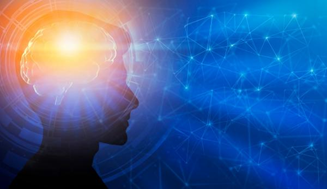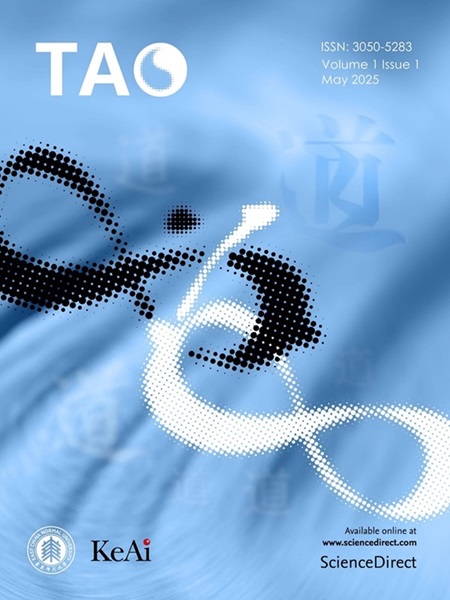Inaugural Editorial
Published 02 July, 2024
Today, confronted with fierce and complex social differentiation and turbulent international relations, people have to doubt and reassess the theories, methods, tools, and experiences once proved effective, and consider how to better meet challenges, overcome difficulties, and create a new future for human civilization.
At this critical juncture, artificial intelligence (AI) has unexpectedly surged forward. Whether it inspires fear and anxiety or jubilation and excitement, there is a consensus among people that AI will herald a new and unprecedented era for humanity. Right now, humans are like a high-speed train barreling through a dark tunnel, unaware of what awaits us when we emerge from the other end. Will it be a sunlit day adorned with rosy clouds, or a stormy day overshadowed by ominous clouds?
AI has brought tremendous uncertainty to the future of humanity. The times are calling for answers to these questions: How will AI evolve in the future? How should we effectively harness AI? And how should we develop ourselves amid this changing landscape?

As early as the mid-1980s, Qian Xuesen emphasized that AI represents the future of humanity. AI falls within the realm of engineering technology, and it requires the support of noetic science for its development (Qian, 1983). Over the subsequent four decades, while AI has indeed made progress, it has never been as remarkable as it is today. With AI's capabilities continuously evolving in terms of knowledge acquisition, humans find it increasingly challenging to surpass its abilities. It is only through delving deeper into the realm of noetic science that humans can potentially outmatch AI and preserve their dignity.
Human modes of thinking and thinking systems are diverse. However, which forms of thinking can serve as the cornerstone for human thinking in the AI era, enabling people to apply their learning across diverse yet related contexts, and to rise to the challenges posed by the AI revolution? Quantum thinking and Laozi's philosophy are the most representative and closely aligned with the concept of "First principles Thinking". They share similarities and compatibility, both maintaining that the universe, all things within it, and their laws exhibit characteristics of superposition, entanglement, uncertainty, and indivisibility. This harmonious blend encapsulates the intersection of Eastern and Western cultures, the blend of ancient wisdom and modern insights, and the union of arts and sciences.
Without a doubt, quantum thinking originates from quantum theory, but it has transcended traditional microscopic physical science. Works such as What is Life by Erwin Schrödinger and Life on the Edge by Johnjoe McFadden, the ongoing discovery of natural and artificial macroscopic quantum phenomena, and the successful application of quantum information theory in the humanities and social sciences have collectively enabled us to view the world through a fresh lens, retrospect the past, and embrace the future. Quantum theory underlies the energy band theory, semiconductors, and subsequently, computers and the Internet. Undeniably, AI has also thrived on this foundation, and this recent surge in AI represents a transformation driven by a deeper understanding of its underlying principles. As quantum technology continues to develop rapidly, a more breathtaking era of AI powered by quantum computing is quickly approaching.
The philosophical insights of ancient Chinese sages such as Laozi and their understanding of natural principles served as a crucial foundation for China's technological development and social governance in ancient times. These insights continue to resonate even in contemporary times, even though their implications are often overlooked by many people. Many Nobel laureates and academic luminaries, including Hideki Yukawa, admire Laozi's thinking and point out its contemporary relevance and future value (Yukawa, 1978). Niels Bohr even incorporated the Tai Chi diagram into his coat of arms and was convinced that it best described quantum theory (Bohr, 1967). Presently, quantum thinking is acknowledged as offering an easier approach to accessing and comprehending Laozi's wisdom. The profound understanding of Laozi's thinking demonstrated by Karl Barry Sharpless stands out as particularly remarkable in this regard.
AI represents the machine intelligence created by humans. Indeed, entrusting cognitive functions to machines can foster inertia in human knowledge acquisition. It is imperative that we anticipate the future and take a leading role in noetic science, avoiding intellectual stagnation caused by a lack of critical thinking. While our contemporary society eagerly pursues and discusses new technologies, results, and discoveries, we still lag in exploring and envisioning " First Principles Thinking " which holds the key to profoundly shaping the future of humanity.

To address this gap, we are launching an meta- ,trans- ,or inter- disciplinary journal dedicated to future sciences and human wisdom. Through the continuous convergence of top researchers from around the globe, we strive to dismantle the confines of traditional disciplines and usher in a novel paradigm for academic research. Our goal is to catalyze the global academic community to uncover novel knowledge domains and forge fresh knowledge systems at the convergence of artificial intelligence and human thought. Ultimately, our mission is to amplify the voice of humanity and provide unwavering intellectual underpinning for the robust and sustainable progress of human society in the future.
Against this backdrop, the comprehensive and innovative academic journal titled "TAO" (道) has been launched, aiming to promote the development of global science, technology, and civilization through quantum thinking and Laozi's philosophy, and to explore the "Way" of the world's science, technology, and civilization. This journal will be a comprehensive, interdisciplinary, and even transdisciplinary publication, focusing on reflecting the revolutionary shifts in thinking systems, technological progress, and social innovation in the era of AI. Given the current landscape and the disciplinary strengths of East China Normal University, which supports the journal, the initial focus will be on the following five disciplines or areas: philosophy, physics, chemistry, education, and AI.

We welcome submissions on all topics related to the aforementioned academic fields, especially systematic review articles that fully capture emerging concepts at the forefront of these disciplines and exploratory research papers that focus on addressing significant issues in these fields. We also encourge experts in related fields to organize special issues or columns in the journal that demonstrate similar characteristics. Furthermore, we also welcome popular science reports and communication pieces from insightful scholars who are committed to promoting and disseminating such academic research results within a broader social context and who are keen on enhancing human well-being through innovative ideas.
The Tao Te Ching says, "The Tao gives birth to One, One gives birth to Two, Two gives birth to Three, and Three gives birth to all things in the universe." Let us unite, taking TAO as a medium, and leveraging the wisdom of Laozi and the study of quantum thinking, to promote the early arrival of a new era of revolution in human thought. Based on this, let us elevate our thinking, explore together a new "Tao" for the advancement of human destiny, and embrace the new dawn of human civilization.
References
Bohr, H. (1967). My Father, in Niels Bohr: His Life and Work as Seen by his Friends and Colleagues,ed. S. Rozenthal, Dordrecht: North Holland Publishing Company.
Lao-Tzu.(2000). Tao Te Ching. Penguin Classics.
Qian, X. (1983). About Noetic Science [in Chinese]. Chinese Journal of Nature, 6(8), 563-572.
Yukawa, H.(1978). Creativity and Intuition. New York: Kodansha America, Inc.
Xuhong Qian
The Editor-in-Chief of TAO,
The President of ECNU